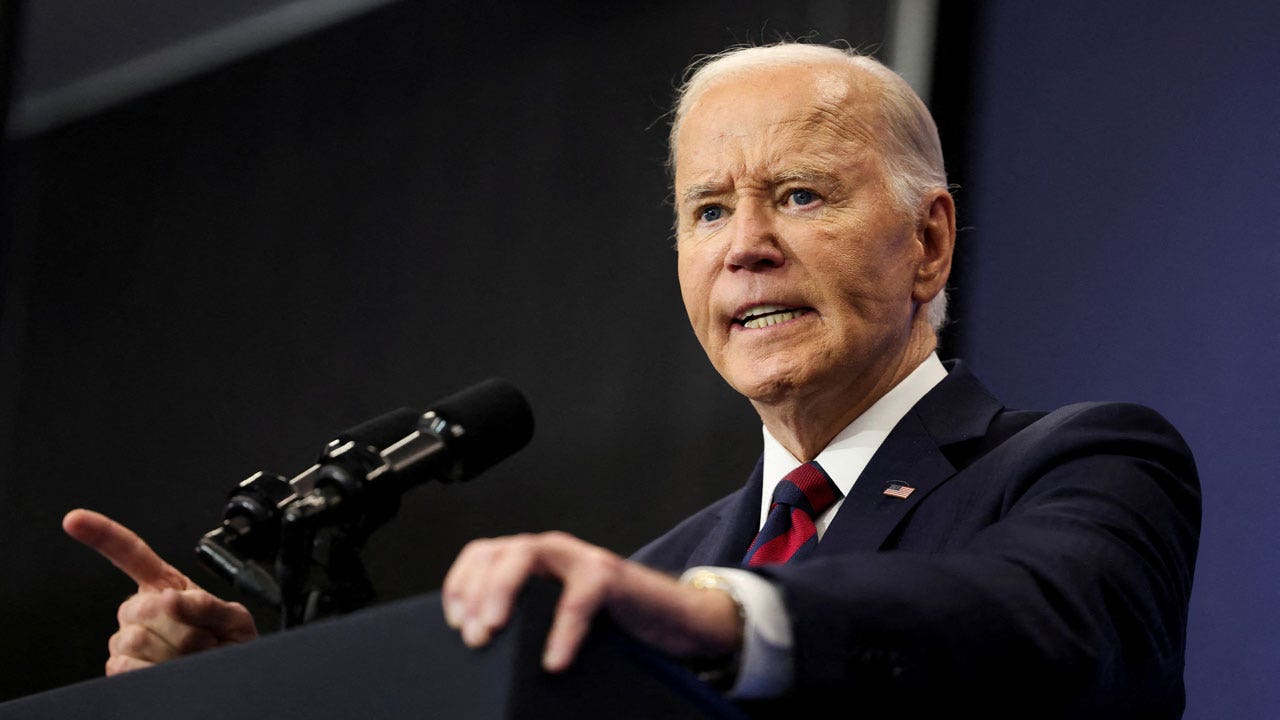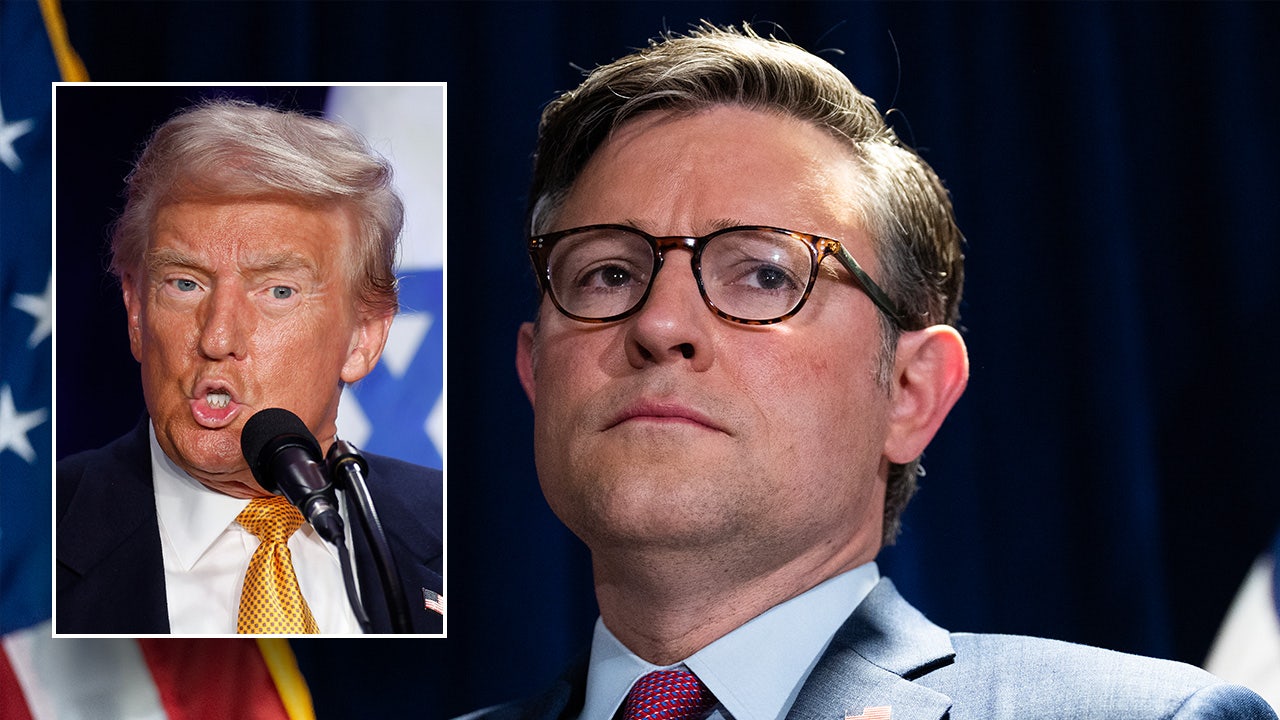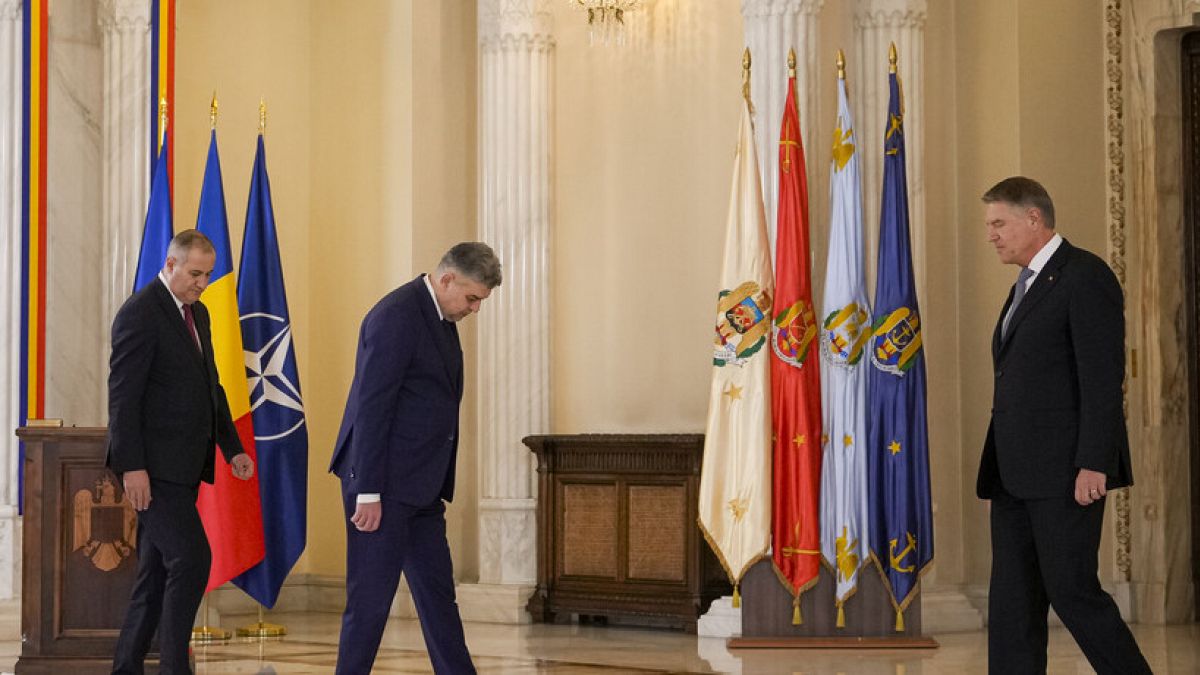Finance
3 finance chiefs give advice to controllers who want to be CFOs

Good morning.
Controllers who have their eyes set on the CFO chair heard from finance chiefs at an annual convention about how to get there as they compete with those that have an investment banking background and MBAs.
There’s more than one path to becoming a CFO, Brandi Joplin, senior VP and CFO at Sam’s Club, told an audience of mostly controllers during a panel session on Wednesday at the American Institute of CPAs (AICPA) and the Chartered Institute of Management Accountants (CIMA) conference in Las Vegas. The annual event brought together more than 3,500 accounting, tax, and financial professionals, according to the organizers.
“I’m fortunate that I work for an organization that has a diversity of experience among our CFOs and we kind of all push off of each other,” Joplin said. “The Walmart U.S. CFO is in my neighborhood, and we will go on walks. His strength is in a different area than mine.” They have conversations about their tasks at work, and “we kind of learn from each other,” she said.
Know the business
Joplin, who has worked in leadership positions at Walmart for 14 years in audit, accounting, and controllership, became CFO at Sam’s Club, a division of the retail giant, in 2019. Advice for accountants thinking about transitioning to the CFO role? “You need to get out into your operations and understand what’s going on,” she said. “Listen to associates and find out their challenges.”
Mark Hammond, EVP and CFO at AssuredPartners, who started his career in public accounting and has spent more than 15 years at Deloitte, had the following advice: “You’ve got to be a great storyteller.”
“I think you’ve really got to hone your communication skills in terms of taking what is a highly technical complicated message and whittling it down into something that is very simple,” Hammond said. Storytelling skills are especially important for controllers to communicate with a wide range of stakeholders, he said. “Your audience that you’re dealing with every day is probably the chief accounting officer and the CFO. They speak your language.”
Steve Robertson, CFO at HDMI Licensing Administrator, Inc., agreed with Hammond’s advice and shared a previous CFO experience. “That’s one of the things that was my biggest challenge going from controller to CFO,” Robertson explained. “I was thrust into the position when a CFO abruptly left. What I was not prepared for was having the right language of finance to communicate to the board. As a controller, oftentimes you’re raised with a bottoms-up mentality, and board members have a top-down mentality. They want quick answers.”
An audience member asked about the impression that fewer CFOs, especially in public companies, have come up through the accounting track. One such analysis by the firm Crist Kolder Associates on the CFOs at a group of more than 650 companies in the Fortune 500 and S&P 500, found that in 2022, 50.2% had MBAs compared to 34.5% who had CPAs.
“I think the investment banking community probably would walk into the role having a better understanding of the business drivers, particularly if they’re going through M&A and transaction kind of things,” Hammond said. The CEO and board want to hear the business story from the CFO in the context of “not just the math or the numbers,” he said. “You’ve got to be able to talk about what’s going on in the business that causes those things,” he explained. “They want to know about top line, production, or sales. They want to know about economic conditions and how those impact your business.”
Joplin offered another piece of advice: “I would tell the accountants in the room to lean into technology, understanding A.I. and what’s coming with machine learning because you need to think about the possibilities of how that can change the work.”
Enjoy your weekend. See you on Monday.
Sheryl Estrada
sheryl.estrada@fortune.com
Big deal
A new report by executive coaching firm Challenger, Gray & Christmas, Inc. found that U.S.-based employers announced 80,089 cuts in May. That’s 287% higher than the 20,712 cuts announced in the same month in 2022, according to the report.
The technology sector announced the most cuts in May with 22,887, for a total of 136,831 this year, up 2,939% from the 4,503 cuts announced in the same period last year. The tech sector has now announced the most cuts for the sector since 2001 when 168,395 cuts were announced for the entire year, according to the firm.
Going deeper
Here are a few Fortune weekend reads:
“As A.I. stocks soar, here’s what top investors like Ray Dalio, Dawn Fitzpatrick, and Stan Druckenmiller think of their prospects” by Lucy Brewster
“4 tech giants accounted for more than 16% of Fortune 500 earnings—even in a down year” by Will Daniel
“The Roberts Supreme Court is poised to strike down a key civil rights era ‘pathway to achieve the American Dream.’ What follows affirmative action?” by Ellen McGirt
“Stress may be wiring your brain to crave sugary food and more of it. Here’s how to reverse that” by Alexa Mikhail
Leaderboard
Here’s a list of some notable moves this week:
Jonathan Lock was promoted to SVP and CFO at The Chemours Company, a global chemistry company, effective June 6. Lock succeeds Sameer Ralhan as CFO, who announced his intention to resign, effective June 19. Lock most recently served as SVP and chief development officer at Chemours. He joined the company in 2018 as VP of corporate development and investor relations and went on to have responsibility for M&A, corporate strategy, enterprise risk management, and more recently, sustainability.
Ritu Kalra was named VP for finance and CFO at Harvard University. Kalra currently serves as Harvard’s assistant VP of finance and treasury and special projects adviser. She succeeds Thomas J. Hollister, who has served in the role since 2015 and will depart on June 30. Before joining Harvard, Kalra spent 18 years at Goldman Sachs, where she held several progressive roles culminating in managing director and served as head of public sector and infrastructure finance for the western region, and as head of higher education finance nationally.
Ravit Ram was promoted to CFO at Motus GI Holdings, Inc. (Nasdaq: MOTS), a medical technology company, effective immediately. Her appointment is part of the previously announced transition plan for Andrew Taylor, who stepped down as CFO on June 2 to pursue other opportunities. Most recently, Ram served as a senior member of the Motus GI management team, including site manager, and VP of global operation and finance, since 2018. Before Motus GI, she served as a site manager, and VP of finance and supply chain at EndoChoice.
Salman Khan was named CFO at Marathon Digital Holdings, Inc. (Nasdaq: MARA), a digital asset technology company. Before joining Marathon, he served as CFO for Verb Technology Company Inc., a provider of interactive video-based software-as-a-service applications. Khan previously served in various senior executive-level positions at Occidental Petroleum Corporation and its spinoff, California Resources Corporation, including director of renewable energy, director of corporate development, director of technical accounting and financial reporting, and business division controller and CFO.
Vikas Mehta was named CFO at Komodo Health, a health care technology company. Mehta brings more than two decades of experience. He was central in digital transformation at Fortune 50 companies including Nike, Walmart, Microsoft, and Paypal. Most recently, Mehta served as the CFO of Anaplan, where he was responsible for finance, audit, legal, procurement, investor relations, accounting, and strategy. Before Anaplan, he was CFO of Nike Direct, where he provided leadership and direction across the supply chain and finance functions to drive digital transformation during the height of the pandemic.
Dave Salverson was named CFO at DTEX Systems, an insider risk management provider. Salverson will support the company’s growth trajectory and advancement of its InTERCEPT Platform. Salverson brings more than 25 years of financial leadership experience, developing finance teams, systems, and processes in high-growth companies. Before joining DTEX, Salverson held the role of CFO at Hazelcast. He has also held leadership roles at Shape Security, Ruckus Networks, and Brocade.
Daniel Welch was named CFO at Kate Farms, which brings plant-based nutrition into health care. Welch joins Kate Farms from Oura Health, maker of the Oura Ring, where he was CFO. Before Oura, he led the corporate finance team at Sonos, Inc. Welch started his career in investment banking, and before Sonos, he was at Morgan Stanley, where he was a VP in the investment banking group.
Overheard
“The current systems are actually not very good at all at doing whole jobs. They’re very good at doing tasks.”
—Sam Altman, CEO of OpenAI, the company that released ChatGPT last year, said on Wednesday at an Economic Times event in India. Altman thinks artificial intelligence is more likely to change your job than steal it, at least in the short term, Fortune reported.

Finance
Stock market today: Nasdaq, S&P 500 edge higher ahead of Christmas break
US stocks opened higher to kick off the final, shortened trading session before the Christmas holiday. The benchmark S&P 500 (^GSPC) edged up about 0.2%, while the tech-heavy Nasdaq Composite (^IXIC) rose roughly 0.3%. The Dow Jones Industrial Average (^DJI) hugged the flatline.
Wall Street is looking to enter its Christmas break rejuvenated, after tech stocks including AI chip giant Nvidia (NVDA) led the march higher on Monday. Markets close at 1 p.m. ET today and are off tomorrow for Christmas Day.
Sizable gains on Friday and Monday have put the indexes back on the path toward their record highs, from which they took a Fed-fueled nosedive last week.
Wall Street is reassessing the path of interest rates next year as it grapples with the reality that the Fed mostly pulled off a so-called soft landing — but couldn’t fully shake the US economy’s inflation problem. According to the CME FedWatch tool, most bets are on two coming holds at the Fed’s January and March meetings, followed by a toss-up in May.
Meanwhile, many eyes continue to be trained on Nvidia, which saw a more than 3.5% gain on Monday. As Yahoo Finance’s Dan Howley writes, 2024 was Nvidia’s year, with the stock up some 180%. But 2025 could contain plenty of challenges.
LIVE 2 updates
Finance
China’s Finance Ministry Vows Greater, Faster Spending in 2025

China’s finance ministry reaffirmed it will increase public spending with a greater focus on boosting consumption to support the economy next year, ahead of growth headwinds from looming US tariffs.
China will “expand the magnitude of fiscal spending and accelerate the spending pace,” according to a statement published Tuesday following a two-day national conference held by the Ministry of Finance on fiscal work in 2025.
Finance
All 11 sectors expected to broaden out in 2025, strategist says
United Parcel Service (UPS) is just one of Powers Advisory Group Managing Partner Matt Powers’ top picks for 2025, calling the postal carrier and logistics operator as having “defensive characteristics and high valuations” as it looks to get carried by several tailwinds next year. UPS is set to release fourth quarter earnings results on January 30, 2025.
Powers sits down with Wealth host Brad Smith to talk about the other opportunities he is seeing across markets (^DJI, ^IXIC, ^GSPC) in the new year.
“Broadening it looks like so all 11 major sectors are actually expected to have year over year earnings increases in 2025. And I think we had or will have seven of the 11 this year, which suggests broadening out,” Powers tells Yahoo Finance.
“But the S&P [500] is trading at 21 times forward earnings, while dividend growth equities which is kind of our core focus are at 19 times. So we see again going back to that back-to-basics approach shifting towards value and just underappreciated areas of the market.”
To watch more expert insights and analysis on the latest market action, check out more Wealth here.
This post was written by Luke Carberry Mogan.
-

 Business1 week ago
Business1 week agoFreddie Freeman's World Series walk-off grand slam baseball sells at auction for $1.56 million
-
/cdn.vox-cdn.com/uploads/chorus_asset/file/23951353/STK043_VRG_Illo_N_Barclay_3_Meta.jpg)
/cdn.vox-cdn.com/uploads/chorus_asset/file/23951353/STK043_VRG_Illo_N_Barclay_3_Meta.jpg) Technology1 week ago
Technology1 week agoMeta’s Instagram boss: who posted something matters more in the AI age
-
News1 week ago
East’s wintry mix could make travel dicey. And yes, that was a tornado in Calif.
-
/cdn.vox-cdn.com/uploads/chorus_asset/file/24924653/236780_Google_AntiTrust_Trial_Custom_Art_CVirginia__0003_1.png)
/cdn.vox-cdn.com/uploads/chorus_asset/file/24924653/236780_Google_AntiTrust_Trial_Custom_Art_CVirginia__0003_1.png) Technology3 days ago
Technology3 days agoGoogle’s counteroffer to the government trying to break it up is unbundling Android apps
-

 Politics4 days ago
Politics4 days agoIllegal immigrant sexually abused child in the U.S. after being removed from the country five times
-

 News4 days ago
News4 days agoNovo Nordisk shares tumble as weight-loss drug trial data disappoints
-

 Entertainment5 days ago
Entertainment5 days ago'It's a little holiday gift': Inside the Weeknd's free Santa Monica show for his biggest fans
-

 Politics1 week ago
Politics1 week agoSupreme Court may free Catholic charities from paying state unemployment taxes for their employees




















